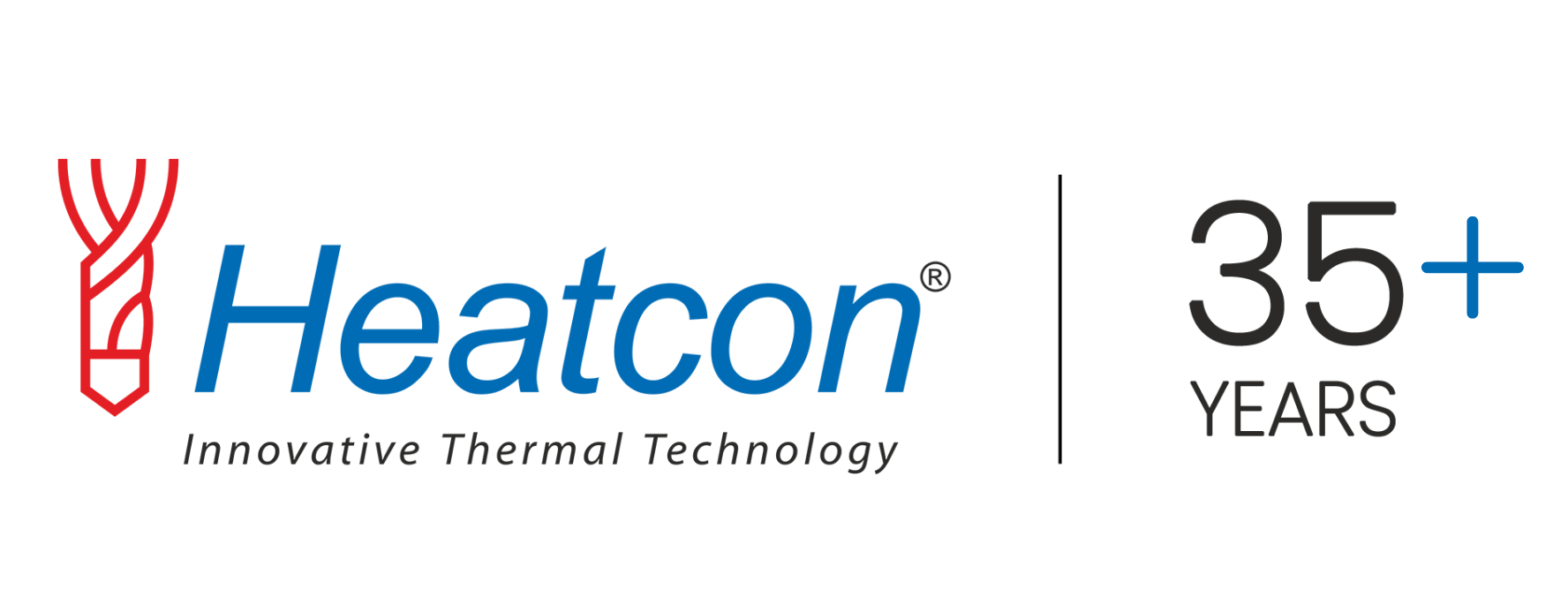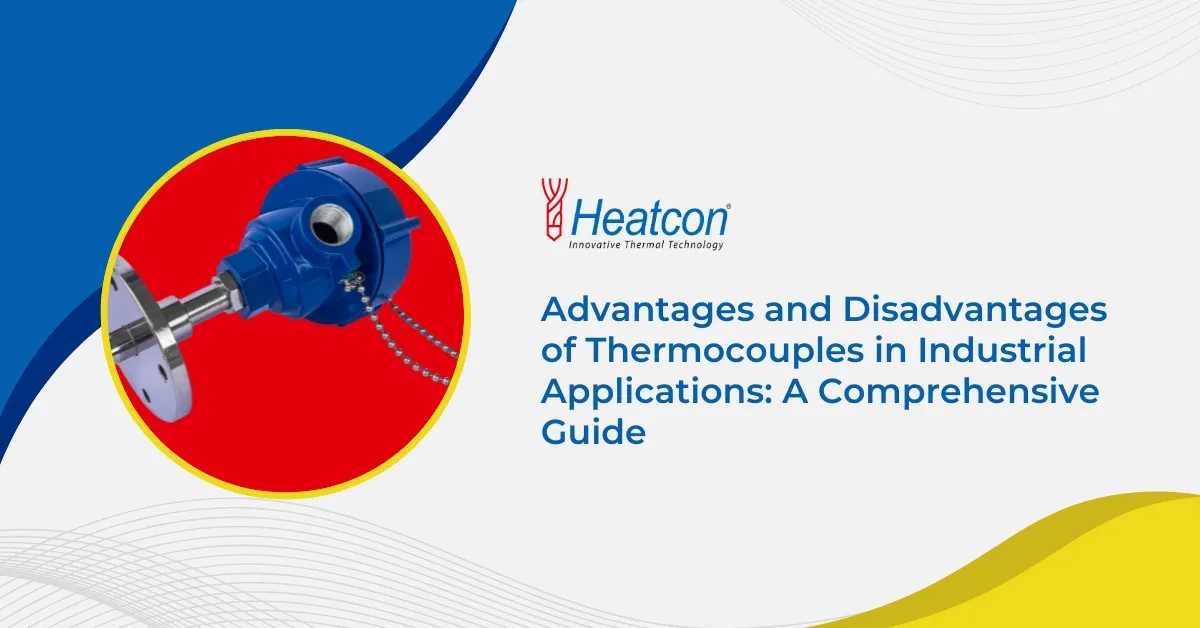Estimating the Resourcefulness of Thermocouples
Thermocouples happen to be among the most widely used temperature sensors in a multitude of industrial applications owing to their sturdy design, broad temperature range, & ability to withstand harsh conditions. In fact, as per a year 2021 report by Grand View Research, the global thermocouple market had been valued at over 1.6 billion dollars & is estimated to grow yearly by 4.6 percent through the year 2028, emphasizing the rising demand for efficient temperature sensing solutions in manufacturing & heavy industries. However, before deciding to procure them, you must know the advantages and disadvantages of thermocouples in industrial applications.
Thermocouples in Industrial Applications
Thermocouples function by generating a voltage due to the Seebeck effect when 2 dissimilar metals meet, making them ideal for environments needing quick temperature responses. But while they provide substantial benefits, they also have limitations that can affect performance, accuracy, and maintenance.
Advantages and Disadvantages of Thermocouples in Industrial Applications
Let us explore the advantages and disadvantages of thermocouples in industrial applications, along with a closer look at how to procure high-quality thermocouples and RTDs from Heatcon Sensors.
Advantages of Thermocouples in Industrial Processes
Thermocouples are renowned for their flexibility & resilience, making them ideal for a broad range of applications. Here are the advantages of thermocouples in industrial processes:
- Wide Temperature Range: Thermocouples can operate over a vast temperature range, typically between -200 degrees Celsius and 2315 degrees Celsius, depending on the type. These thermocouple temperature range advantages make them versatile for both extreme hot & cold environments that are essential in industries like metal processing & chemical manufacturing.
- Fast Response Time: Owing to their small size & direct exposure to measured environments, thermocouples provide rapid response times. Such quick response is vital in processes needing precise, instantaneous temperature adjustments to maintain quality & safety standards.
- Cost-Effectiveness & Durability: Compared to other temperature sensors such as RTDs (Resistance Temperature Detectors), thermocouples are usually much more affordable. Thermocouple cost-effectiveness and performance make them a preferred choice in large-scale applications where multiple sensors are required. Also, thermocouples are durable; they can endure mechanical stress, which is pretty common in manufacturing environments.
- Simplicity & Low Maintenance Requirements: Thermocouples are relatively straightforward devices with minimal parts, meaning they are less prone to damage from electrical issues. These thermocouple pros and cons for high-temperature environments aspect also translates to lower maintenance costs over time, as these need lesser attention in comparison to more complex sensors.
Disadvantages of Thermocouples in Temperature Measurement
While thermocouples provide numerous advantages, they also have some fallbacks, which can impact their suitability for certain industrial processes. Below are the disadvantages of thermocouples in temperature measurement:
- Limited Accuracy Compared to RTDs: While thermocouples perform well at high temperatures, they are usually less accurate than RTDs, specifically at low temperatures. RTDs tend to give better stability & repeatability, making them preferable in processes needing highly accurate temperature control. Such distinction emphasises thermocouples vs RTDs for temperature sensing.
- Thermocouple Drift & Recalibration Issues: Thermocouples are prone to thermocouple drift and recalibration issues over time, especially when used in extreme or fluctuating temperatures. Drift happens when the properties of the thermocouple materials change because of prolonged exposure to high temperatures, lowering accuracy & reliability. Regular recalibration is necessary to maintain precision, but this can add to operational costs.
- Susceptibility to Corrosion in Harsh Environments: In industrial applications involving highly reactive substances or corrosive gases, thermocouples can degrade, resulting in premature failure. This thermocouple corrosion vulnerability in harsh environments can be mitigated by using protective sheaths, but it can still pose a challenge in highly aggressive chemical settings.
- Output Signal Sensitivity: Thermocouples generate relatively small output voltages that can be sensitive to electrical noise in certain environments. This makes them less suitable for applications with high electrical interference without appropriate shielding, adding to installation costs.
- Lower Sensitivity in Low-Temperature Applications: Thermocouples are usually less sensitive in low-temperature applications, where RTDs or other sensors may be more effective. While they work well in extreme heat, their performance & precision can decrease in colder environments that can be limiting in industries needing fine control at lower temperatures.
Procure Thermocouples & RTDs from Heatcon Sensors
You have gathered a good amount of knowledge about the advantages and disadvantages of thermocouples in industrial applications. So, when selecting a temperature sensor for industrial applications, it is crucial to work with a trusted supplier that understands the significance of quality & reliability. Heatcon Sensors specialises in manufacturing both thermocouples & RTDs, designed specifically to meet the demands of industrial environments. As a leading provider of temperature sensing solutions, Heatcon provides a wide range of thermocouples, including popular types like K-type & J-type ones, as well as RTDs designed to deliver accurate measurements & withstand extreme conditions.
Get the Best!
We have a multitude of options suited to different applications. Whether you are working in high-temperature metal processing, petrochemicals, or general manufacturing, Heatcon Sensors gives expert support to help you select the ideal sensor for your requirements. For industries with stringent accuracy requirements, Heatcon’s RTDs provide superior stability & precision, making them a reliable choice for applications where temperature consistency is critical.


